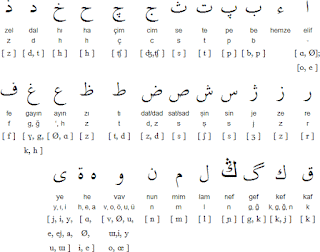 |
| Our USA State Department was not sure whether or not the Taliban are still terrorists 3 years ago in 2013. They had opened an office in Qatar to bring on stability without the USA's help. Afghan President Hamid Karzai has halted talks with the United States “to protest the way the Americans are reaching out to the Taliban in efforts to find a political solution to the war.” Karzai expressed his disappointment with the U.S. government for holding direct talks with the Taliban before bringing Afghan officials into the negotiations. Not terrorists? Then why did they kill " 14 Hazaras in Ghor Province? in 2014? Violent attacks in Afghanistan cause a surge in child civilian casualties and impeded access to medical care then. "The Taliban view the country's minority Shia community as apostates, and have targeted Hazaras in the past with suicide bombings and other attacks." In this case, they stopped a bus and killed the Hazaras on it who are Shi'ites. Are they really that much different from IS? |
The Taliban "is an Islamic fundamentalist political movement in Afghanistan currently waging war (an insurgency, or jihad) within that country. From 1996 to 2001, it held power in Afghanistan and enforced a strict interpretation of Sharia, or Islamic law, of which the international community and leading Muslims have been highly critical.
Their ideology has been guilty of many outlandish acts "which resulted in the brutal treatment of many Afghans, especially women. During their rule from 1996 to 2001, the Taliban and their allies committed massacres against Afghan civilians, denied UN food supplies to 160,000 starving civilians and conducted a policy of scorched earth, burning vast areas of fertile land and destroying tens of thousands of homes. In its post-9/11 insurgency, the group has been accused of using terrorism as a specific tactic to further their ideological and political goals. According to the United Nations, the Taliban and their allies were responsible for 75% of Afghan civilian casualties in 2010, 80% in 2011, and 80% in 2012.
They are worse than the Mafia was in the United States in the 20's and 30's, fighting off other
equally nasty mobs aiming to take over.
Osama bin Laden was taken out by the USA in Pakistan in May 2011. This also brought on
the assassination of many important Afghanis by the Taliban insurgents.
"The Afghan Taliban's main goal is a full withdrawal of foreign forces from Afghanistan and the fall of the Afghan central government under Ashraf Ghani. The Taliban leadership operates in so-called leadership councils (shuras). The main Taliban leader was Mullah Omar, who reportedly died in April 2013. He was replaced by Mullah Akhter Mansoor, although some senior Taliban members do not recognize him as their leader."
Afghanistan is not doing well. It is one of the poorest countries in the world with a population of about 28,395, 716 people who are 99% Sunni and some Shi'a. It's an Islamic state following the Hanafi and Jafari fiqhs like Pakistan, Bangladesh, Uzbekistan, etc. It is the 12th largest Muslim majority state, whereas Pakistan is the 2nd largest with 172,800,000 population and 97% Sunni and Shi'a, also another Islamic state. Afghanistan is one of the least developed and most corrupt states in the world. .
 |
| Pashtos "Afghan Amir Sher Ali Khan (in the center with his son) and his delegation in Ambala, near Lahore, in 1869. |
Out of Afghanistan's population, about 13,750,117 were Pashtuns in 2008, just a little less than half the population. Some, no doubt, belong to the Taliban, but not all of them. Those that don't have suffered harm from them. The Pashtos are made up of several different tribes claiming descent from several different groups. An interesting point is that several tribes come from the Lost 10 Tribes of Israel. "According to Ethnologue, the total population of the group is estimated to be around 50 million, but an accurate count remains elusive due to the lack of an official census in Afghanistan since 1979. Estimates of the number of Pashtun tribes and clans range from about 350 to over 400."
 |
| Indian Bollywood actor, Saif Ali Khan's paternal ancestors were Pashtuns. The movie, Eklavya-The Royal Guard, stars Saif, of which is the only Indian video I possess. Born in New Delhi, India, he is the son of Sharmila Tagore, and Indian cricketer, Mansoor Ali Khan. Both his grandfather, Iftikhar Ali Khan Pataudi, and father were professional cricketers. His mother, Sharmila Tagore, an actress within her own rights, is the grand-niece of renowned Rabindranath Tagore, who converted to Islam after marrying Saif's father. |
"Many high-ranking government officials in Afghanistan are Pashtuns, including: Zalmay Rasoul, Abdul Rahim Wardak, Omar Zakhilwal, Ghulam Farooq Wardak, Anwar ul-Haq Ahady, Yousef Pashtun and Amirzai Sangin. The list of current governors of Afghanistan, as well as the parliamentarians in the House of the People and House of Elders, include large percentage of Pashtuns. The Chief of staff of the Afghan National Army, Sher Mohammad Karimi, and Commander of the Afghan Air Force,Mohammad Dawran, as well as Chief Justice of Afghanistan Abdul Salam Azimi and Attorney General Mohammad Ishaq Aloko also belong to the Pashtun ethnic group."
There is so much to improve on in Afghanistan, where does one begin; from the culture comes this corruption that is running amok. No wonder terrorists do well here. Wherever people do not follow their law, it develops; here, Mexico, wherever. It must start with politicians, and then expect others to do the same.
Resource: http://www.newsweek.com/taliban-warns-isis-dont-come-afghanistan-343651
https://en.wikipedia.org/wiki/Taliban_insurgency
https://en.wikipedia.org/wiki/Taliban
https://en.wikipedia.org/wiki/Pashtuns
http://www.breitbart.com/national-security/2013/06/19/state-dept-unsure-if-taliban-still-considered-terrorists/
http://www.aljazeera.com/news/asia/2014/07/afghanistan-attack-201472553221541767.html
****http://jewishbubba.blogspot.com/2015/10/pashtuns-and-jews-who-have-lived-in.html











